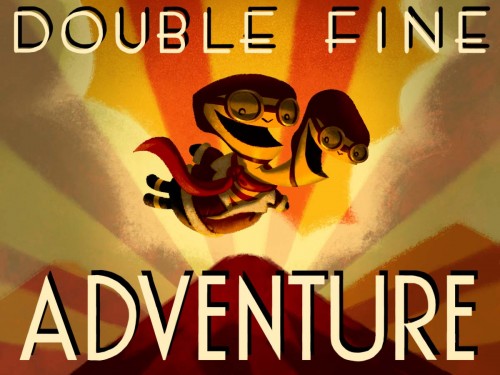This week marks the 5th Anniversary of Double Fine Adventure – February 8th, to be exact. To celebrate the crowdfunding platform that changed the gaming industry, we’re going to dedicate this entire week to examining the campaign in detail over on our YouTube channel. To kick off the festivities, we begin with Kicked!, and a look at what made the campaign both so successful, beloved, and hated.
To this day, Double Fine Adventure remains my favorite Kickstarter campaign, despite all the hate that once surrounded it. Most of that is garbage, but you can be forgiven for thinking the hate towards the campaign is justified. Just look at it. By modern standards it’s atrocious, and nobody would ever get a fraction of a fraction of what Double Fine received if they trotted that out today.
But Double Fine wasn’t necessarily pitching a game with this campaign, they were pitching a process. We’ll go into this in more detail in our videos throughout the week, but Double Fine was trying to do three things with this campaign: establish crowdfunding an effective way to raise money for developers, document the entire process of game developer for the general public, and bring back adventure games.
To achieve point #2, Double Fine needed to start with a blank slate. Lead designer and company founder Tim Schafer wanted to start from the very beginning of the development process, and that meant pitching the campaign without an actual idea for the game. It was risky, but it paid off big time.
For more on what makes this campaign in particular so special, why so many people seemed to hate Double Fine in the years after the campaign, and the final result, be sure to watch today’s episode of Kicked!, and stay tuned for the rest of Double Fine Adventure Week.



